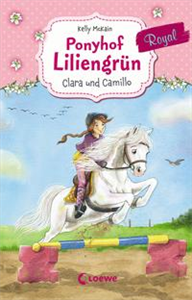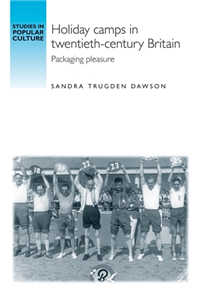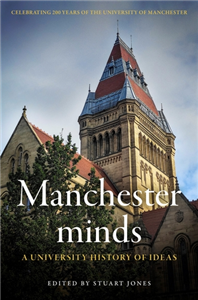Your Search Results
-
Promoted Content
-
Promoted ContentHumanities & Social SciencesApril 2023
Who governs Britain?
Trade unions, the Conservative Party and the failure of the Industrial Relations Act 1971
by Sam Warner
Providing fresh insights from the archival record, Who governs Britain? revisits the 1970-74 Conservative government to explain why the Party tried - and failed - to reform the system of industrial relations. Designed to tackle Britain's strike problem and perceived disorder in collective bargaining, the Industrial Relations Act 1971 established a formal legal framework to counteract trade union power. As the state attempted to disengage from and 'depoliticise' collective bargaining practices, trade union leaders and employers were instructed to discipline industry. In just three-and-a-half years, the Act contributed to a crisis of the British state as industrial unrest engulfed industry and risked undermining the rule of law. Warner explores the power dynamics, strategic errors and industrial battles that destroyed this attempt to tame trade unions and ultimately brought down a government, and that shape Conservative attitudes towards trade unions to this day.
-
 Trusted Partner
Literature & Literary StudiesOctober 1994
Trusted Partner
Literature & Literary StudiesOctober 1994Yerma
by Federico Garcia Lorca, Rebecca Warner
The second of Lorca's trilogy of rural dramas, Yerma, is a blend of contrasting moods through which Lorca charts the increasingly destructive obsession of a childless young country wife, and probes the darker zones of human fears and desires. The play's rich mode of expression - a combination of verbal, visual and auditory images and rhythms - is also geared to celebrating sexual attraction and fertility, creation and procreation. Through his characterization of the play's central figure, Lorca raises the question of women's social status - a controversial question both then and now, and one to which Robin Warner pays particular attention in his critical introduction to the play. He also examines the links between the dramatic structure of Yerma and the importance of cultural politics during the course of the Second Spanish Republic. The Spanish text is supported by an introduction and notes in English, as well as by an extensive vocabulary and section of discussion questions. ;
-
 Trusted Partner
November 2008
Trusted Partner
November 2008Geliebte Clara
Die Geschichte von Clara und Robert Schumann
by Wolfgang Held
Helma Sander-Brahms hat das Leben der Clara Schumann verfilmt: "Es geht um eine hochbegabte, eine geniale Frau im Konflikt zwischen Karriere, Mann und Kindern, die sich gegen ihren Willen opfern muß, um das Leben um sich zu erhalten." Als Robert Schumann die neunjährige Clara Wieck kennenlernt, ist er noch ein unbekannter Musiker und sie bereits ein umjübeltes, selbstbewußtes Wunderkind. Während der Ehe stellt sie ihre Begabung in den Dienst ihres Mannes, spielt seine Konzerte in ganz Europa, ohne dabei jedoch ihre Unabhängigkeit als Künstlerin aufzugeben. Nach dem frühen Tod von Schumann entwickelt Clara tiefe Zuneigung zu Johannes Brahms, der dem Ehepaar bereits viele Jahre freundschaftlich verbunden war.
-
 Trusted Partner
February 2020
Trusted Partner
February 2020Ponyhof Liliengrün Royal (Band 3) - Clara und Camillo
Pferdebuch für Mädchen ab 7 Jahre
by Kelly McKain, , Julia Gerigk, Simone Wiemken
Auf Ponyhof Liliengrün gehen Träume in Erfüllung! Denn hier bekommt jedes Mädchen ein eigenes Pony, das es eine Woche lang striegeln, putzen, streicheln und natürlich auch reiten darf. So wird jeder Reiterurlaub zu einem ganz besonderen Erlebnis. Hurra! Clara ist überglücklich, denn sie verbringt ihre Ferien auf Ponyhof Liliengrün. Dort möchte sie bei dem großen Springturnier unbedingt einen Null-Fehler-Ritt hinlegen. Aber ihr Schimmel Camillo ist ein sehr freches Pony und scheut vor dem Wassergraben. Ob Clara das Beste aus ihrem Pony herausholen und ihr Ziel erreichen kann?
-
 Trusted Partner
Trusted Partner
-
 Trusted Partner
Trusted Partner
-
 Trusted Partner
Trusted Partner
-
 Trusted Partner
Literature & Literary StudiesJanuary 2013
Trusted Partner
Literature & Literary StudiesJanuary 2013Ottonian Germany
The Chronicon of Thietmar of Merseburg
by David Warner
The Chronicon of Thietmar of Merseburg has long been recognised as one of the most important sources for the history of the tenth and early eleventh centuries, especially for the history of the Ottonian Empire. Thietmar's testimony also has special value because of his geographical location, in eastern Saxony, on the boundary between German and Slavic cultures. He is arguably the single most important witness to the early history of Poland, and his detailed descriptions of Slavic folklore are the earliest on record. This is a very important source in the medieval period, translated here in its entirety for the first time. It relates to an area of medieval studies generally dominated by German scholars, in which Anglo-phone scholars are beginning to make a substantial contribution.
-
 Trusted Partner
Humanities & Social SciencesFebruary 2011
Trusted Partner
Humanities & Social SciencesFebruary 2011Holiday camps in twentieth-century Britain
Packaging pleasure
by Sandra Trudgen Dawson, Jeffrey Richards
This book is the story of two holiday camp chains established in the 1930s that provided thousands with packaged pleasure. Warner and Butlin's commercial camps emerged at the intersection of cultural shifts that politicised working-class leisure and consumption. Entertainment fostered in the post-war camps provided a forum for popular pleasure that reinforced the idea of a 'national' culture grown from the common experience of war. Butlin and Warner, the big commercial chains of the 50s and 60s, are enmeshed in our social and cultural history. Dawson uncovers the significance of the holiday camps to the political, economic, social, and cultural history of twentieth-century Britain, drawing on an impressive variety of sources, from government documents to trade journals, advertising, photographs, oral histories, literature, films and songs. This unique volume will be of interest to academics and specialists of British social history, popular culture and tourism studies whilst remaining accessible to enthusiasts. ;
-
 Trusted Partner
Trusted Partner
-
 Trusted Partner
Literature & Literary StudiesApril 2000
Trusted Partner
Literature & Literary StudiesApril 2000Modernism and empire
Writing and British coloniality, 1890–1940
by Howard Booth, Nigel Rigby
This is the first book to explore the relationship between literary modernism and the British Empire. Contributors look at works from the traditional modernist canon as well as extending the range of work addresses - particularly emphasising texts from the Empire. A key issue raised is whether modernism sprang from a crisis in the colonial system, which it sought to extend, or whether the modern movement was a more sophisticated form of cultural imperialism. The chapters in Modernism and empire show the importance of empire to modernism. Patrick Williams theorises modernism and empire; Rod Edmond discusses theories of degeneration in imperial and modernist discourse; Helen Carr examines Imagism and empire; Elleke Boehmer compares Leonard Woolf and Yeats; Janet Montefiore writes on Kipling and Orwell, C.L. Innes explores Yeats, Joyce and their implied audiences; Maire Ni Fhlathuin writes on Patrick Pearse and modernism; John Nash considers newspapers, imperialism and Ulysses; Howard J. Booth addresses D.H. Lawrence and otherness; Nigel Rigby discusses Sylvia Townsend Warner and sexuality in the Pacific; Mark Williams explores Mansfield and Maori culture; Abdulrazak Gurnah looks at Karen Blixen, Elspeth Huxley and settler writing; and Bill Ashcroft and John Salter take an inter-disciplinary approach to Australia and 'Modernism's Empire'. ;
-
 Trusted Partner
Trusted Partner
-
 Trusted Partner
Humanities & Social SciencesSeptember 2024
Trusted Partner
Humanities & Social SciencesSeptember 2024Manchester minds
A university history of ideas
by Stuart Jones
A bicentennial celebration of brilliant thinkers from The University of Manchester's history. The year 2024 marks two centuries since the establishment of The University of Manchester in its earliest form. The first of England's civic universities, Manchester has been home and host to a huge number of influential thinkers and generated world-changing ideas. This book presents a rich account of the remarkable contribution that people associated with The University of Manchester have made to human knowledge. A who's who of Manchester greats, it presents fascinating snapshots of pioneering artists, scholars and scientists, from the poet and activist Eva Gore-Booth to the economist Arthur Lewis, the computer scientist Alan Turing and the physicist Brian Cox.
-
 Trusted Partner
1991
Trusted Partner
1991Der Mann mit dem Schnee
Ein Insider des Drogenkartells packt aus
by Mermelstein, Max / Englisch Drechsler, Clara
-
 Trusted Partner
Trusted Partner
-
 Trusted Partner
Trusted Partner
-
 Trusted Partner
Literature & Literary StudiesAugust 2013
Trusted Partner
Literature & Literary StudiesAugust 2013Alan Moore and the Gothic tradition
by Matthew J. A. Green
-
 Trusted Partner
July 2006
Trusted Partner
July 2006»Schlage nur eine Weltsaite an«
Briefe 1828–1855
by Robert Schumann, Karin Sousa, Karin Sousa, Rüdiger Görner, Karin Sousa
Ach ja – von den Schmerzen und Freuden, die die Zeit bewegen, der Musik zu erzählen, dies, fühl ich, ist mir vor vielen Andern zuerteilt worden.« Robert Schumanns Lieder und Klavierstücke, seine Orchesterwerke und Kammermusik zählen zu den bedeutendsten Werken der musikalischen Romantik. Seine Liebe zu Clara Wieck ist ein Stoff, aus dem Filme gemacht wurden. Aber neben Mendelssohn ist Schumann wohl auch der gebildetste und wortgewandteste aller romantischen Komponisten. Die Musikkritiken, die er, der nach einer Fingerlähmung die Pianistenkarriere aufgeben mußte, in seiner Neuen Zeitschrift für Musik schrieb, zeugen von seinem avancierten musikalischen ebenso wie literarischen Geschmack. Seine Briefe verfügen über ein breites Spektrum an Ausdrucksmöglichkeiten: von der lyrischen Emphase bis zur analytischen Schärfe. Der Band enthält ausführliche Anmerkungen, ein Namenregister sowie Verzeichnisse der Briefe und der Werke Robert Schumanns. Diese Briefausgabe ist die einzige derzeit lieferbare Auswahlausgabe. Sie dokumentiert alle wichtigen Stationen in Schumanns Leben und Schaffen – die Entscheidung für den Musikerberuf, erste Erfolge, den Kampf um die Liebe seines Lebens – in Briefen an die Familie, an Freunde und Musikerkollegen und natürlich an Clara.
-
 Trusted Partner
1989
Trusted Partner
1989In weiblicher Gestalt
Die Verkörperung des Wahren, Guten und Schönen
by Warner, Marina / Übersetzt von Preuschoft, Claudia



























